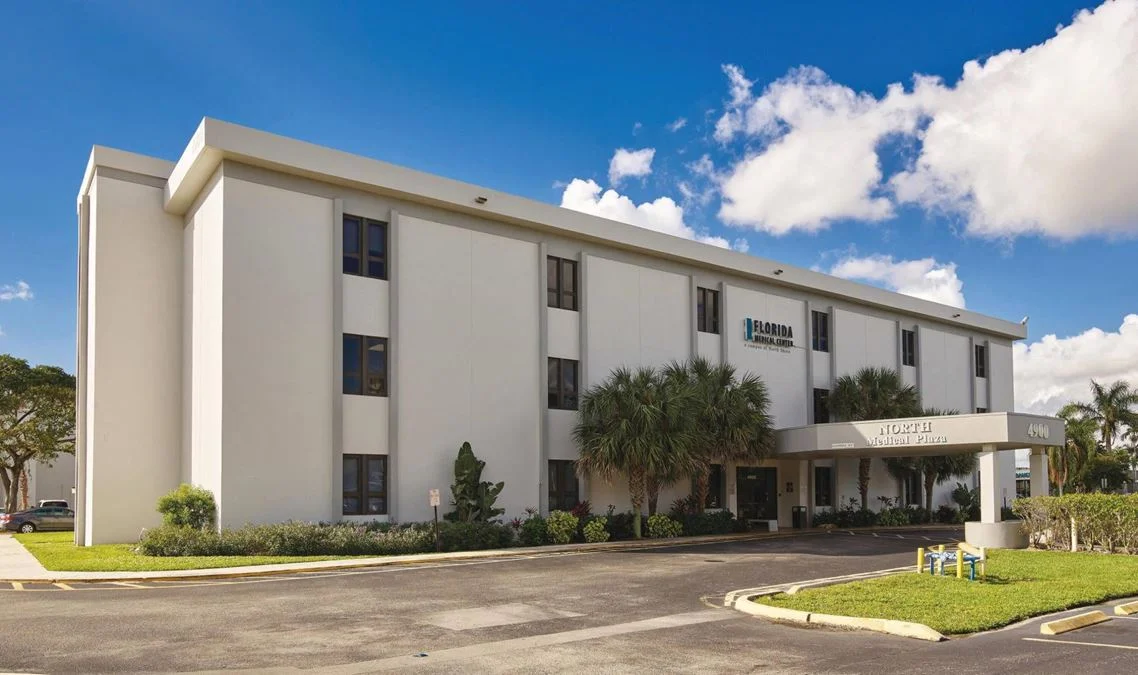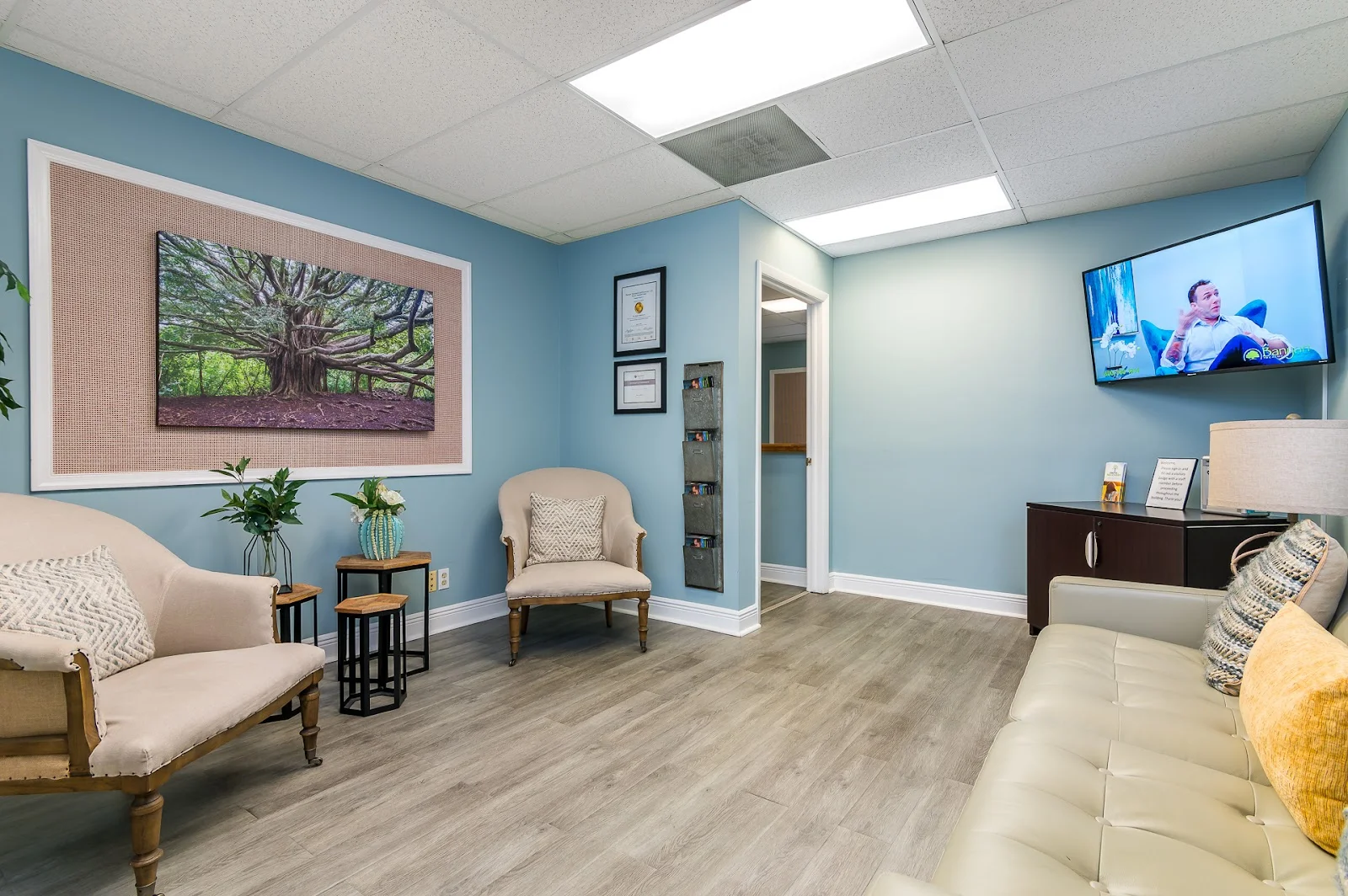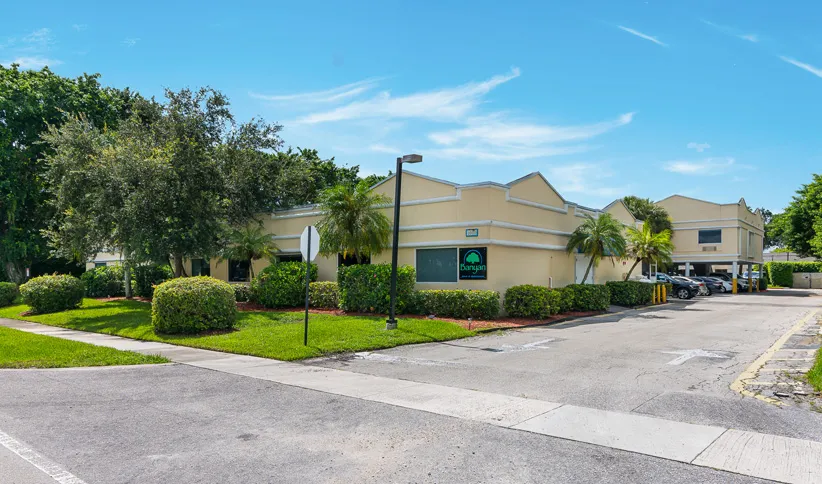Banyan Treatment Centers - Stuart Information
Treatment
Who We Treat
- Male and Female
- Veterans
Treatment Focus
- Alcohol
- Anxiety
- Benzodiazepines
- Co-Occurring Disorders
- Drug Addiction
- Veterans
- Residential
Approaches
- 12-Step-Based
- Individual Treatment
- Evidence-Based
- Twelve Step
- Holistic
- Cognitive Behavioral Therapy (CBT)
- 1-on-1 Counseling
- Adventure Therapy
- Art Therapy
- Meditation & Mindfulness
- Online Therapy
Conditions We Treat
- Depression
- Anxiety
- Post Traumatic Stress Disorder (PTSD)
- Trauma
- Co-Occurring Disorders
Substances We Treat
- Alcohol
- Benzodiazepines
- Chronic Relapse
- Heroin
- Cocaine
- MDMA/Ecstasy
- Ecstasy
- Psychedelics
Languages
- English
Aftercare
- Intensive Outpatient Program
- Aftercare Recovery Coach
- Follow-up Sessions (online)
- Outpatient Treatment
- Private
- Professional Re-entry Support
- Online Alumni Groups
Level of Care
- Outpatient
- Intensive Outpatient Program (IOP)
- Day Treatment
- Outpatient Detox
- Virtual & In-Home Care
- Detox
- Residential Rehab
- Co-Occurring Mental Health
Experience
On-Site Amenities
- Access to Nature
- Basketball Court
- Fitness Center
- Gardens
- Gourmet Dining
- Internet Access
- Library
- Chef-prepared Meals
- Outdoor Dining
Personal Amenities
- Air-Conditioned Rooms
- Bathroom Essentials
- En Suite Bathroom
- Housekeeping
- Allow Cell Phones
- Internet Access
- Laundry Service
- Private or Shared Rooms
- Shared Bathroom
Off-Site Amenities
- Airport Transfers
On-Site Activities
- Yoga
- AA/NA Meetings
- Alternative Meetings
- Volleyball
- Movies
- Physical Fitness
- Reading
Off-Site Activities
- Museums
- Adventure Outings
- Farming
- Gardening
- Fishing
- Hiking
- Massage
- Sightseeing
- Swimming
- Water Activities
Special Considerations
- Allows Phones
- Gender-specific groups
- Dietary Accommodations
- Vegan
- Vegetarian
- COVID-19 Measures
- Healthy Meals are provided
Accreditations
-
State department of health
Government agencies issue State Licenses, granting rehabilitation organizations permission to operate their businesses lawfully within specific geographic regions. The specific licenses needed for legal operation are typically determined by the type of rehabilitation program offered by the facility and its physical location.

-
The Joint Commission
The Joint Commission accreditation for addiction and behavioral health is a prestigious recognition signifying a facility's commitment to delivering high-quality care and safety for individuals dealing with substance abuse and mental health issues. It involves rigorous evaluations and assessments, ensuring patients receive evidence-based treatment and exceptional care. This accreditation demonstrates a facility's dedication to continuous improvement and ethical practices, building trust among patients and healthcare professionals seeking top-tier addiction and behavioral health services.

-
Drug Enforcement Agency (DEA)
DEA accreditation refers to the process by which a law enforcement agency is recognized by the Drug Enforcement Agency (DEA) as having met specific training, operational, and resource requirements necessary to participate in DEA-led drug enforcement efforts. This accreditation allows the agency to perform DEA-related tasks such as conducting investigations, executing federal search warrants, and participating in joint task forces.
Additional Locations
Banyan Treatment Centers - Stuart Accepts The Following Insurance Plans
Find the best treatment options. Call our free and confidential helpline today!
















